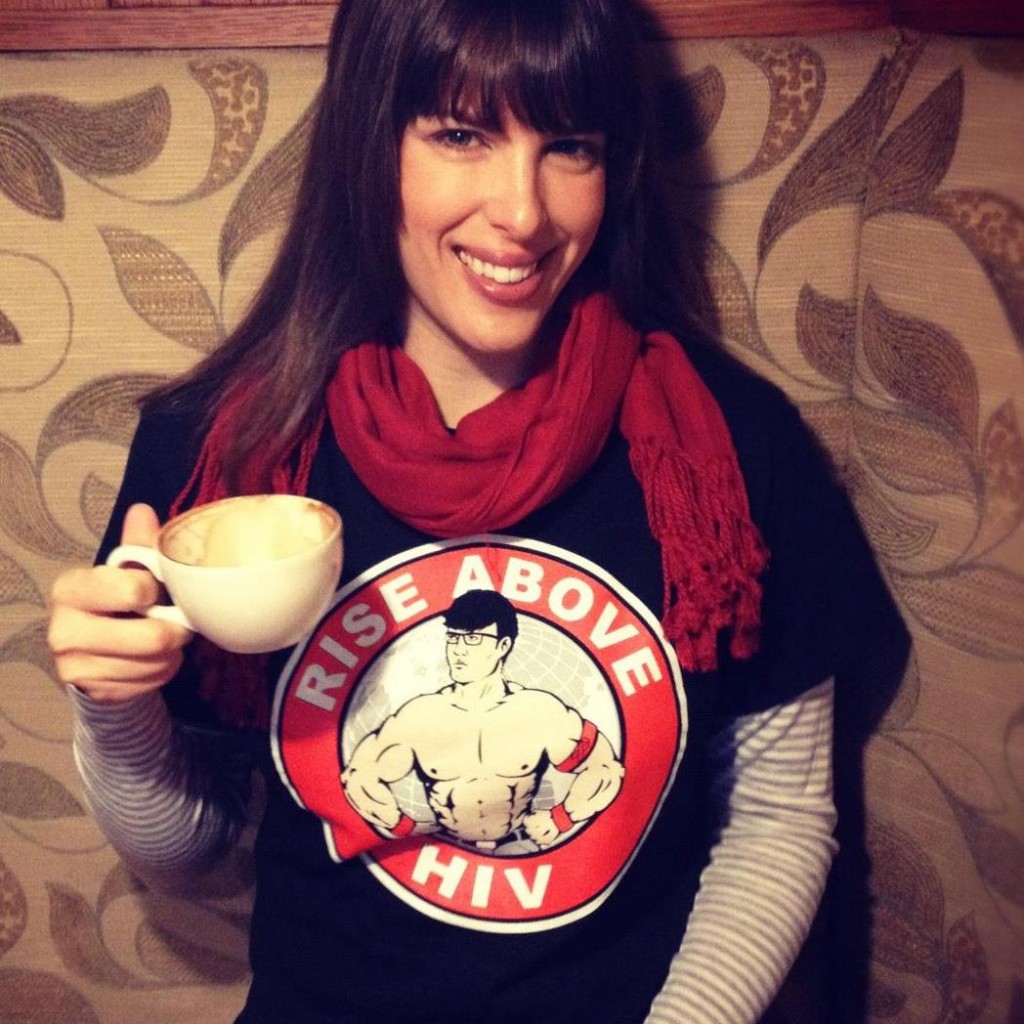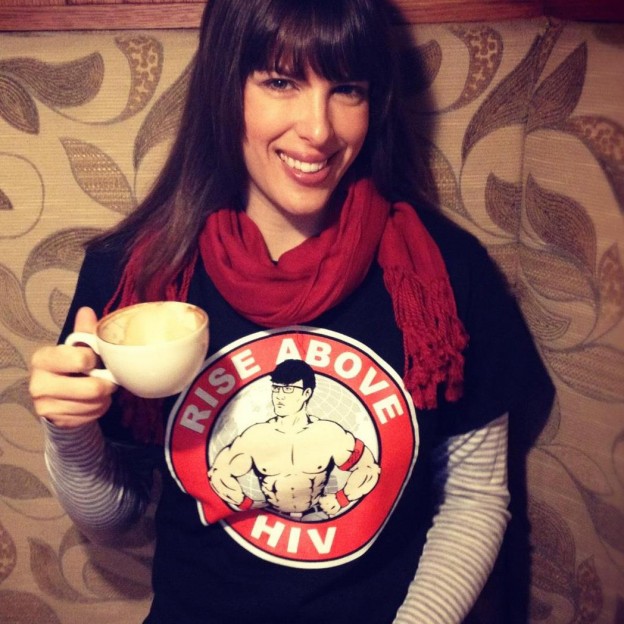There’s been a lot of talk in the past 12 months about women’s preferred contraceptive methods. With the coining of the “Pull Out Generation” and the launch of the ACA’s (Affordable Care Act) contraception mandate, much of this talk has been centered around birth control. This is an important discussion that pleases many sex educators: it’s about applying informed choices to people’s lifestyles and relationships, and determining the method that best suits that person’s circumstances.
However, hardly any time in this discussion has attended to those women who use the simple condom as their primary contraception. Even less attention is given to STI testing and prevention. These important topics have been swept aside and treated as a separate issue that seemingly doesn’t apply to long-term sexual relationships.

I spoke with a woman who fits within that cohort of condom-using relationships. Gwenn Barringer is part of the well known sexual health and HIV activist duo, Shawn and Gwenn. Gwenn wrote her Master’s thesis about condom usage in short term and long term relationships among college women. Now she is a public speaker and vlogger busy busting HIV ignorance. Her approach? Using her 15+ years sexual relationship with her HIV positive partner, Shawn, to teach others about sexual health.
Over email, we talked about Gwenn’s research findings on the likelihood of condom use in “trusting” relationships. We connected her thesis to her personal life and the contraception strategies that she’s chosen. First, Gwenn lays out the terms of her research and main findings:
Yes, Gwenn found that women in shorter relationships depended on condoms more than women in long term commitments. This wasn’t a big surprise. What was striking was deciphering the meaning of “short” and “long-term”. Gwenn states, “I found across the literature that a short term relationship was defined as 3 weeks or less, and therefore a long term relationship was defined as more than 3 weeks. This is what I used in my study to define relationship length, so when we are talking about condom use being decreased in long tern relationships, we are talking about a month or so.”
Gwenn continues: “My findings had a lot to do with the vague notion of trust. Women felt like they trusted their partners at the magic 3 week mark. I wish I had more time back then to go further with the trust notion but that was beyond my scope at the time. I do find anecdotally that college women feel that time spent with a partner equates to trust. And while I understand this, I try to encourage STI testing as a trusting experience.”
Gwen makes a key point- notions of trust and sexual health are intrinsically linked. This is a fairly general statement because what “trust” actually means varies from person to person. But all contraceptive methods- all consensual sexual acts -involve degrees of trust. “Pulling out” relies on a partner to be in control of his climax. Condoms are also about partner cooperation and protecting each other.
However, when it comes to public discourse around birth control in long term (heterosexual) commitments, male condoms are often portrayed as unpopular. In fact, some people struggle with getting their partner to use a condom because the other views it as a symbol of distrust in their relationship. Gwenn responds to this contradiction:
“As far as my thoughts on the condom paradox of trust, I do think that is an interesting observation. I feel like it has to do with trust but also has a lot to do with breaking some fantasies that people have about new partners. When you are in a new relationship often times it seems like everything is perfect and magical. Thinking about or discussing a condom inserts the realities of life into that which isn’t always fun.”
We ended the interview by Gwenn reflecting on the prevention regime Shawn and her practice. She is quick to debunk the notion that condoms connote distrust and non-commitment.
“My own relationship has an incredible deal of trust. I don’t think you can really be in a healthy relationship without trust and I certainly don’t think you can be in a serodiscordant relationship without a great deal of trust. That trust for Shawn and I came out of much communication about sex before we ever had sex.”
“Our prevention strategy is condoms each time we have sex. When we first were together, I was also on hormonal birth control but discontinued that (for reasons not related to Shawn’s status or our sex life) about 6 years ago. So we are also using condoms at this point as pregnancy prevention as well. We have discussed the issue of Shawn’s “infectiousness” due to his undetectable viral load and while we haven’t made any major changes to our sex life because of that, we do feel another level of security because we know it would be highly unlikely for him to transmit HIV to me even if there were a break or slip.”
There is no single birth control that suits everyone. However, condoms remain the only birth control that prevents STI infection. The issue of transmission should not be glossed over when discussing contraceptive methods. Furthermore, the conversation needs to include and represent serodiscordant couples and relationships in which both or one partner carries STIs.
You can read and watch more of Gwenn at her blog and YouTube Channel, Shawn and Gwenn.


